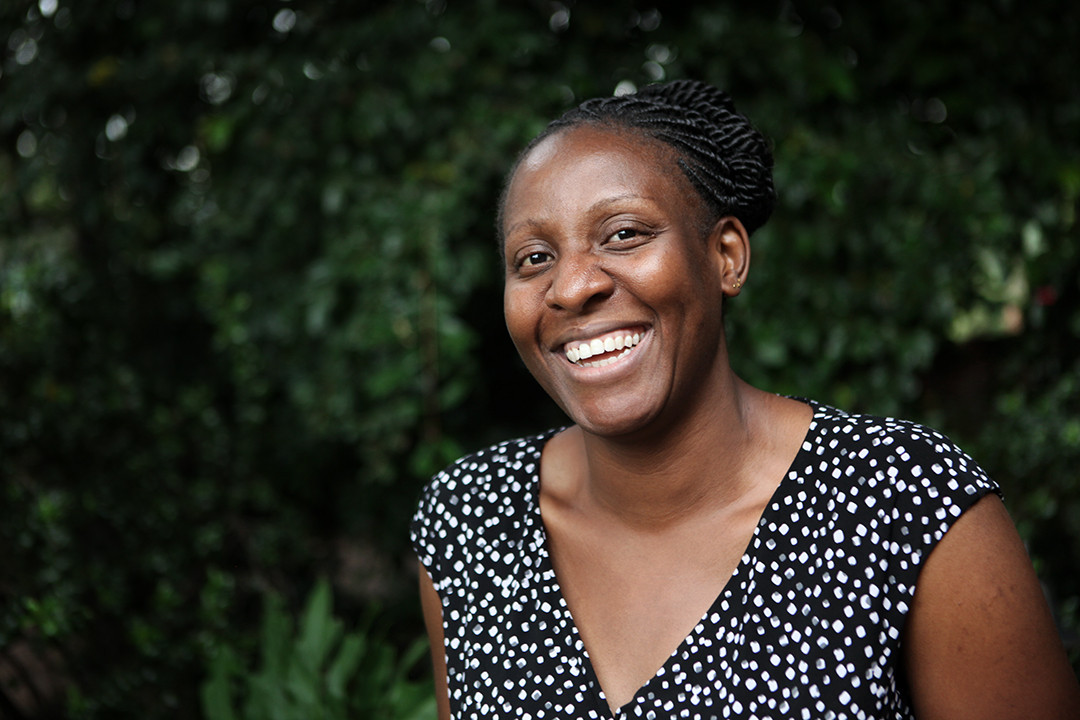Bringing youth into the conversation on agriculture is not just about jobs
“Take it to the farmer.”
Norman Borlaug
When Norman Borlaug gave us - the global community - this call to action, he was telling us to make our scientific advances useful  and used by farmers. Too many times, our science fails to reach those who need it. In today’s world, even putting more nutritious food on the table is a challenge. Rising obesity and malnutrition don’t just stunt our potential to fully realize an agricultural revolution in Africa. They hurt the people we need to protect most: our young people.
and used by farmers. Too many times, our science fails to reach those who need it. In today’s world, even putting more nutritious food on the table is a challenge. Rising obesity and malnutrition don’t just stunt our potential to fully realize an agricultural revolution in Africa. They hurt the people we need to protect most: our young people.
Yet our science can be a solution, and now we need to take it to every farmer – especially the young ones. Our groundbreaking study just published in the Journal of Nutrition shows - for the first time - the link between eating iron-biofortified beans and marked improvements in memory, attention and other cognitive abilities. Our findings showed that when iron-deficient women ate iron-biofortified beans for just 18 weeks, they had better memory recall and attention spans, as well as reduced iron deficiency.
When we say we must include youth in agriculture, we must mean not just getting young people excited about farming as a business. We must make sure that agriculture does not fail our young people before they even get started. For me, as a nutritionist, that means making sure that they are not stunted, and that they do not suffer from anemia or obesity. That they are equipped for life with all of their potential; all of their brain power.
Yet it is our young people who continue to suffer. Stunting is caused by long-term hunger and results in children that are too short for their age. This is not just physical. It results in what many have called a “life sentence of underachievement”. Unfortunately, it can be inherited as women who were themselves stunted in childhood tend to have stunted offspring, creating an intergenerational vicious cycle of poverty and reduced human capital that is difficult to break.
Millions of young people in Africa deal with hunger every day and often go to school on an empty stomach, making it difficult for them to learn and excel. We can tackle hunger by linking local farmers to local school feeding programs, encouraging them to grow diverse and nutritious foods like high-iron beans. - For example in Rwanda, school lunch programs have been shown to improve study concentration, performance, and reduce dropout rates; and in Tanzania where a program has been shown to improve overall health as highlighted in a recent blog post by Bill Gates.
Anemia is also known as hidden hunger mainly because on the outside, its victims may appear to be eating enough food, yet the body lacks essential vitamins and minerals that keep people healthy. Over two billion people worldwide - a large proportion living in Africa -are affected by this hidden hunger, stealing vitality from the young and impairing brain development of children. The agriculture sector can nourish young people by promoting the production of biofortified foods - crops developed to provide more essential vitamins and minerals. In fact, my own research from Rwanda proved that eating beans biofortified with iron can reduce iron deficiency and improve brain function in young women in just a few months. Let us scale up investments in biofortification.
Unhealthy diets typically initiated or solidified during adolescence are resulting in higher levels of obesity among young people, setting the stage for dangerous non-communicable diseases (NCDs) such as cancer and diabetes later in life. Good nutrition depends on access to a healthful food supply. If a bottle of soda is cheaper than an apple, what choice would a young person make? Young people need to consume real food - particularly plenty of fresh fruits and vegetables. More than just talk needs to be done; let us get insights from the Let’s Move! campaign launched by Michelle Obama and teach young people in Africa how to eat healthy and make a variety of fresh fruits and vegetables readily available for all income levels and age groups.
Furthermore, since the 1980s scientists have been reviewing evidence showing that children exposed to poor nutrition while in the womb can be vulnerable to non-communicable diseases like cancer and diabetes when they reach adulthood. In his book on The First 1,000 Days, award-winning journalist and anti-hunger advocate Roger Thurow explains how proper nutrition between a child’s conception and his second birthday can profoundly influence an individual's ability to grow, learn, and work.
My research shows that the best insurance against undernutrition in children during the 1,000 days is to ensure that young girls have optimal nutrition before they become mothers. And this means that we don’t just need to invest in scientific solutions and get them to the farmer. To finally break the poverty and malnutrition cycle in Africa, we need to make sure our innovations really go the last mile: not just developing high-iron beans, but making sure our young people eat them too.


